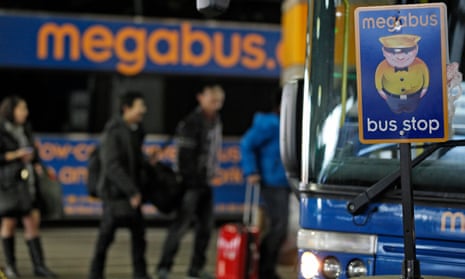Stagecoach has said that lower fuel prices are encouraging consumers to choose car and air travel over buses and trains, weighing on its first-half revenue growth.
The bus and rail group that operates South West Trains and Megabus said the trend was evident in both its UK and US businesses, but long-term prospects for public transport were positive.
Shares rose 2% after Stagecoach reported a 1.6% increase in revenue to £2bn in the 26 weeks to 29 October, while pre-tax profit dipped to £89.5m from £90.8m in the same period last year.
“Across all of our divisions, we have continued to see subdued revenue trends relative to the stronger growth we have delivered over the last 10 years or so,” the company said.
“In the UK and North America, we have seen revenue growth in both the bus and rail sectors affected by sustained low fuel prices that have resulted in heightened competition from cars and airlines.”
Operating profit within its UK rail business more than halved over the period to £20.5m. Stagecoach said the division had been hit by a poor operational performance from Network Rail.
The company, which operates Coach USA and Megabus in North America, said expectations for adjusted earnings in 2016-17 were unchanged, and recommended an interim dividend of 3.8p a share, up 8.6%.
Martin Griffiths, the chief executive, said he was confident in the long-term outlook for the group, and for public transport, and the business would continue to invest.
He said: “We are pleased with the performance of the business in the face of a challenging and uncertain political and economic environment. We see positive long-term prospects for public transport.
“There is a large market opportunity for modal shift from cars to public transport against a backdrop of population growth, urbanisation, technological advancements, and increasing pressure to tackle road congestion and improve air quality.”

Comments (…)
Sign in or create your Guardian account to join the discussion